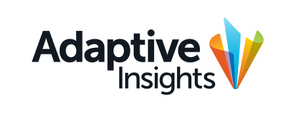PALO ALTO, CA — (Marketwired) — 02/03/16 — , the worldwide leader in for the biggest brands and the hottest companies, today released its revealing that chief financial officers (CFOs) not only want their teams to be well-versed in accounting principles but increasingly value “soft skills” like interpersonal communications and collaboration. As important, the vast majority of the 533 global CFOs surveyed cited collaboration with other parts of the organization as a key initiative in 2016, as finance increasingly sits at the “hub” of big data.
Among the CFO Indicator report–s key findings:
Collaboration tops the priority list: 70% of CFOs cite collaboration as their top 2016 initiative
Value of soft skills is nearly equal to that of traditional finance skills: 76% of CFOs desire candidates with Microsoft® Excel skills, and 75% cite interpersonal communications as a critical skill
Significant amount of time is dedicated to collaboration: 82% of finance teams spend at least five hours meeting with other parts of the organization to problem solve, with 51% spending more than nine hours
“We–ve seen a shift for some time now in the role of CFOs from financial gatekeepers to champions of strategy and value creation for the company,” said Rob Hull, founder and chairman at Adaptive Insights. “To successfully transition into this new role, CFOs — and their teams — must be able to effectively partner and collaborate across the organization. It–s not surprising then that CFOs are looking to add soft skills like communication and collaboration to their teams to accelerate this new generation of finance leaders and the broader finance organization.”
According to the survey, CFOs still cite experience with Excel (76%) as the most important skill needed on their teams, followed by interpersonal and communications (75%), collaboration (70%), and data analytics (68%) skills. When asked about the most important skill needed to be a strategic CFO, they cited strategy at a business level and finance level as the most important, followed by leadership and the ability to manage a diverse team. Given that these skillsets are traditionally also needed at the chief executive officer (CEO) level, these responses may reflect the fact that 48% of respondents aspire to be CEOs.
Yet the survey also reveals that building a well-balanced team with the desired skillset proves challenging. When asked to select their three greatest staffing challenges to building and developing finance teams for 2020, only 13% of CFOs cited a lack of accounting skills and knowledge as a staffing challenge, while one-third cited poor collaboration and communication skills.
Topping the list of staffing challenges, however, is a lack of analytics experience (55%) and a lack of time/resources for professional development (53%). In fact, lack of time is also cited by over 79% as the most problematic collaboration issue for their teams.
While CFOs and finance teams are spread thin, they see value in both data analytics and collaboration. In order to transition into their new roles as strategic business leaders, they will need technology and tools that automate complex processes, aid them in effectively communicating about the data, and help them collaborate across their organizations. Only then can they evolve to deliver the insights and value that businesses have come to expect of the finance function.
This sentiment appears to be reflected in the survey results, with 58% of CFOs reporting that upgrading technology is a key initiative for their teams in 2016, as is data visualization (53%). As previously noted, collaboration is another top initiative for 2016, and many CFOs are already deeply engaged in collaboration activities. In fact, 82% of CFOs report spending at least five hours per week meeting with other departments, with 51% reporting their teams spend upwards of nine hours. Despite these efforts, an inability to align with other departments on key metrics (46%) was stated to be problematic.
Not surprising given the volatility of the current economic climate, 80% of CFOs see economic uncertainty in their region as the top external force posing the greatest financial risk. Interest rates and inflation (61%), the outcome of national elections (50%), and currency fluctuations (38%) are also cited.
The Adaptive Insights CFO Indicator reports what is top of mind for CFOs, as well as unveils key attributes that define the modern CFO. An detailing the CFO Indicator Q4 2015 results is also available. This report surveyed 533 chief financial officers across the globe online over a period of 22 days ending January 7, 2016. The margin of error is +/- 4.19 percentage points.
Adaptive Insights is the leader in . Via its software as a service (SaaS) platform, the company offers capabilities for that empower finance, sales, and other business leaders with insight to drive true competitive advantage. The Adaptive Suite is sold direct or is available through Adaptive Insights– robust cloud CPM channel ecosystem of 200+ partners, including Accenture, Armanino, BDO, Cohn Reznick, Intacct, KPMG, McGladrey, Plex Systems, and Workday. NetSuite also offers Adaptive Planning as its NetSuite Financial Planning Module.
More than 3,000 companies in 85 countries use Adaptive Insights. These range from midsized companies and nonprofits to large corporations, including AAA, Boston Scientific, CORT, Epcor, Konica Minolta, NetSuite, Philips, P.F. Chang–s China Bistro, and Siemens. Adaptive Insights is headquartered in Palo Alto, Calif. For more information, visit , the , and follow Adaptive Insights on , , and .
Contacts:
Diane Orr
Adaptive Insights
650-422-7334
Jennifer Harlan
Highwire PR
415-963-4174 ext. 63


You must be logged in to post a comment Login